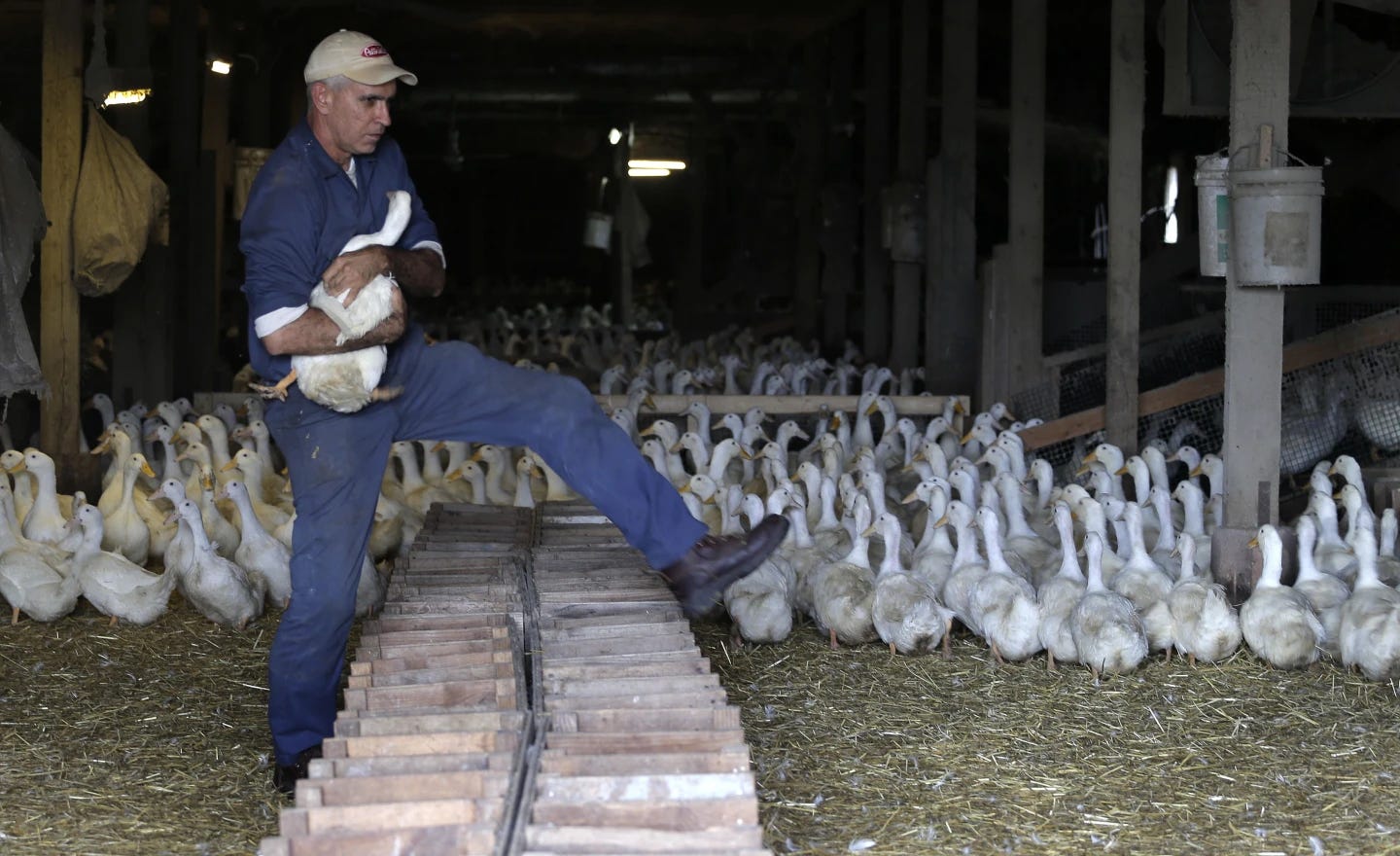Long Island’s Last Duck Farm Considers Closing After Avian Flu Forces Slaughter of Entire Flock
NEW YORK (AP) — Once a hub for duck production, Long Island could soon lose its last commercial duck farm after an avian flu outbreak devastated the Crescent Duck Farm, forcing federal authorities to order the culling of its entire flock.
Doug Corwin, whose family has owned the 140-acre farm in Aquebogue for over 350 years, confirmed on Friday that a multiday culling operation had been completed, resulting in the destruction of approximately 100,000 ducks. The farm is now under quarantine as staff begins the lengthy process of disinfecting the facility.
“We’re just stunned right now,” said Corwin, 66, over the phone. “It’s a very, very sad time. We’re trying our best to work our way through this, one step at a time.”
The family-owned farm, established in 1908, was a key supplier of ducks in the Northeast, providing nearly 4% of the ducks consumed in the U.S., including many high-end restaurants in New York City. The operation has been a fixture on Long Island’s North Fork, an area once known for its thriving duck farming industry. In the 1960s, Long Island boasted over 100 duck farms, producing up to 7.5 million birds annually, or two-thirds of the nation’s total output.
Today, Crescent Duck Farm is the only surviving commercial duck farm on the island, having weathered rising operational costs, stricter regulations, and suburban sprawl. However, the outbreak of avian flu has placed the future of the farm in jeopardy. Corwin, who had to lay off 47 of the farm’s 75 employees, expressed uncertainty about the farm’s ability to continue.
“If duck farming isn’t an option, I’m not sure what we’d do,” he said. “We’re not really set up for anything else.”
Despite the setback, Corwin is hopeful that a portion of his flock can be rebuilt from several thousand duck eggs that were spared during the culling. These eggs, which will be sanitized and hatched offsite, are expected to help preserve the unique genetics that have been carefully developed over generations.
However, Corwin’s plans depend on the approval of the federal government to allow poultry vaccinations, which larger industrial farms oppose due to concerns over international trade. Without this approval, Corwin fears that smaller operations like his will remain vulnerable to future outbreaks.
The farm had implemented strict protocols to prevent the avian flu, which has affected millions of birds nationwide, yet Corwin is still unsure how the virus entered the facility.
“We had identified weaknesses and tightened everything up,” he said. “It wasn’t enough, I guess.”
While avian flu has had minimal impact on human health, with just 67 confirmed cases and one death in the U.S., the virus has caused widespread damage to the poultry industry. The U.S. Department of Agriculture reports that more than 13 million birds have been infected in the past month, with new cases emerging daily.
Crescent Duck Farm's future remains uncertain, but Corwin remains dedicated to his family’s legacy, even as the avian flu threatens to end a long tradition of duck farming on Long Island.


